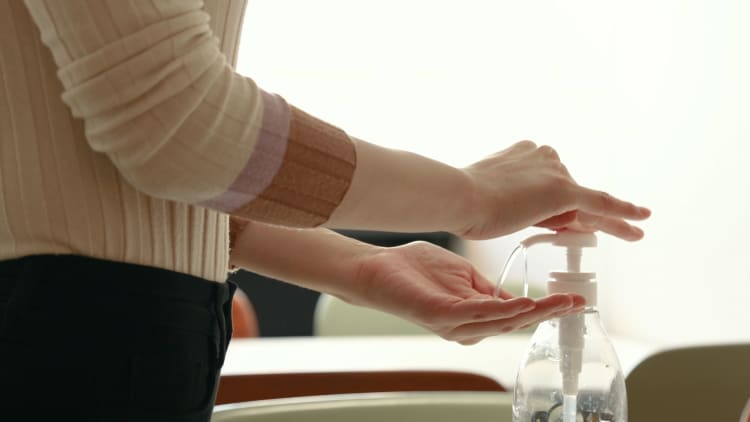A group of Instacart shoppers is planning a nationwide strike on Monday to protest the grocery delivery app's response to the coronavirus outbreak.
It comes at a critical time as the delivery start-up aims to add an additional 300,000 workers over the next three months to meet surging demand. The new hires would be independent contractors, not employees that are eligible for benefits. Earlier this month, the company said it would provide up to 14 days of paid sick leave to workers diagnosed with the coronavirus or placed under quarantine. Instacart has also rolled out contactless delivery, but in-store shoppers are pushing for more — including personal protective equipment like disinfectant wipes, hazard pay of $5 per order, and an extended sick pay policy that shields those with preexisting conditions.
"For the past several weeks, [we] have been urging Instacart to take property safety precautions," Gig Workers Collective, a labor activism group, wrote in a memo this morning. "We have been ignored."
On Friday, perhaps in a preemptive response to the planned strike, Instacart detailed new pay incentives and safety guidelines for shoppers, including an update to its extended pay policy for workers who are forced into quarantine, and bonus pay for in-store shoppers based on the number of hours worked. It's also offering a new way to deliver alcohol without risking contact by requiring an in-person signature, and shoppers can also now report problems through a "safety incidents" section on its app.
But some in-store shoppers say these new measures don't go far enough.
"Instacart's response to our demands lacks substance, and does nothing to protect us," Vanessa Bain, a vocal critic of the company, wrote on Twitter. "Conceding to one demand is way too little, way too late. Our call for an emergency walk off still stands."
Bain, who lives in Menlo Park, Calif., stopped working on March 13 in an effort to comply with California's order for people to stay in their homes.
Workers have called for national boycotts in the past, but failed to gain much traction for issues like forcing the company to reinstate the 10% default tip that was reduced in 2016.
This time could be different, some workers believe. Sarah Clarke, one of the organizers behind the strike and a former Instacart shopper of three years, says the start-up has not done enough to protect its workforce amid the pandemic.
"They don't even provide the bare minimum like hand sanitizers or masks," Clarke said. "We are expected to risk our lives for $7 an hour."
While Instacart says it has "secured hand sanitizer to distribute to shoppers across the community," it will only be distributed in the coming days and weeks.
Other in-store shoppers told CNBC they have also been subject to lower tips from customers when they can't completely fulfill orders, as many store items are out of stock.
Grocery stores have faced soaring demand during the last few weeks. As of mid-March, sales for online grocers in the U.S. were 86% higher than the same time last year, according to Earnest Research. And, between March 10 and March 16, Instacart alone saw sales jump 107% from a year ago.
The looming strike comes as legislators push for more protections for workers in the gig economy. Gig workers won a landmark protection in the $2 trillion relief bill passed by Congress. President Trump signed the bill into law on Friday afternoon. It allows gig workers, including Uber and Lyft drivers, to apply for unemployment benefits. The plan also provides for up to $600 in extra payments for an additional four months.




